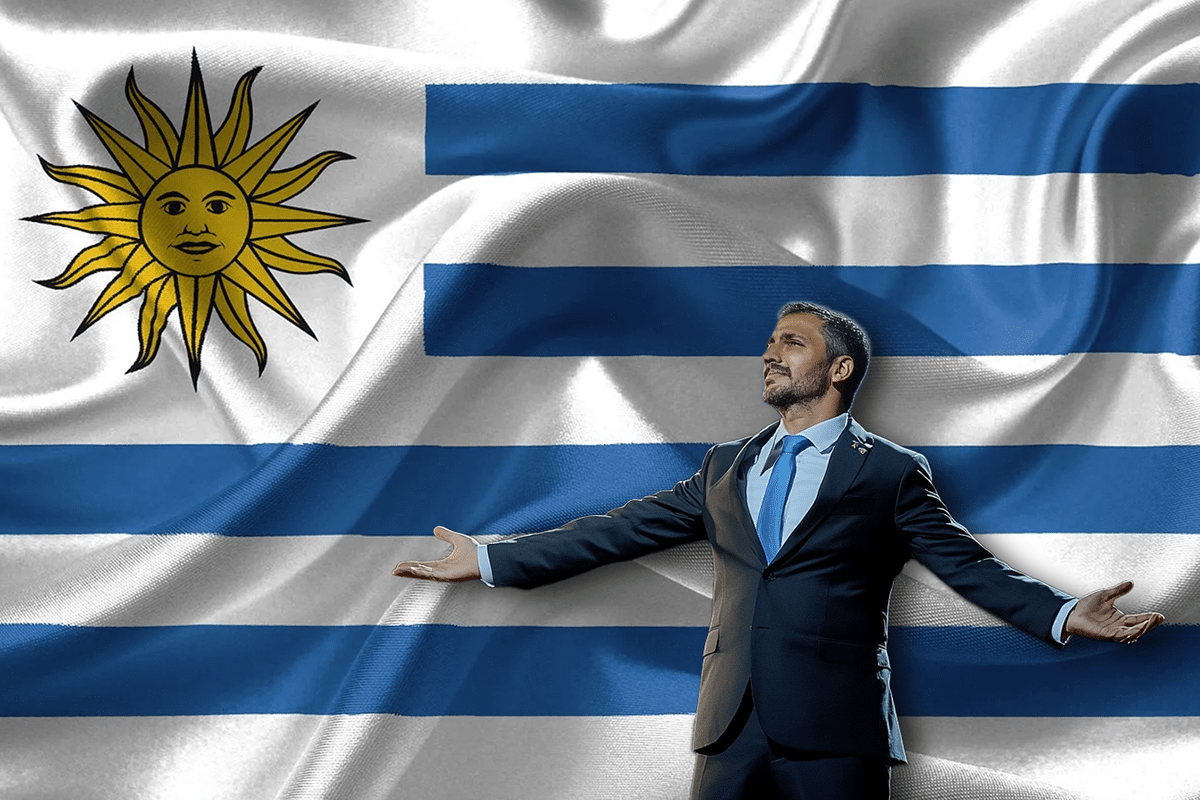Uruguay, known for its strong democratic institutions, is preparing for a runoff presidential election on November 24. The contest will feature Yamandú Orsi, representing the center-left Broad Front alliance, and Álvaro Delgado, candidate of the center-right ruling coalition. Both candidates are vying for leadership in a political climate focused on maintaining stability while addressing key issues such as crime, pension reform, and education.
In the first round of voting, Orsi took the lead with 41% of the vote, falling short of the 50% threshold needed to secure an outright victory. Delgado followed with just over 27% of the votes. The turnout was a remarkable 89% of the 2.7 million eligible voters, showcasing Uruguay’s commitment to its electoral process, where voting is compulsory in both presidential and congressional elections.
The Broad Front, which governed Uruguay from 2005 to 2020, is seeking to return to power. During its previous tenure, the coalition led the country through a period of economic growth and introduced socially progressive policies that legalized abortion, same-sex marriage, and recreational marijuana. The Broad Front’s renewed campaign reflects public demand for a stronger social safety net in a country where one in five children lives in poverty and pension reform is becoming increasingly urgent. Orsi, with working-class roots, has positioned himself as a relatable candidate, pledging to limit the perks of office. His leadership style echoes that of former President José Mujica, a charismatic figure who remains a key supporter of the Broad Front.
Meanwhile, Álvaro Delgado, representing the governing coalition, promises to continue the business-friendly policies of current President Luis Lacalle Pou. Though Lacalle Pou is constitutionally barred from seeking re-election, his approval rating of 50% has provided a boost to Delgado’s campaign. His message to voters emphasizes stability and continuity, with a campaign slogan encouraging voters to “re-elect a good government.” Delgado has also secured support from Andrés Ojeda, a third-place candidate known for his energetic campaign targeting younger voters. Ojeda, who secured 17% of the vote, has pledged to support Delgado’s coalition in the runoff.
In addition to the presidential race, voters rejected a constitutional referendum that would have lowered the retirement age and transferred privately managed pension savings to a government-run trust. This proposal, had it passed, would have significantly increased the fiscal deficit, which raised concerns among investors. A second referendum, which sought to allow nighttime police searches with a court order, also failed to gain the majority needed for approval.
Uruguay’s election offers a marked contrast to the political turmoil seen in neighboring countries like Argentina and Brazil, where electoral campaigns have been marred by polarization and discontent with the status quo. In Uruguay, the contest has remained civil and focused on policies rather than personal attacks. This approach has reinforced the country’s reputation as one of the safest and most stable democracies in Latin America.
As the campaign enters its final stretch, experts predict a tight runoff, with Delgado expected to gain additional support from coalition allies. The outcome remains uncertain, as both candidates represent moderate positions and share overlapping talking points. Uruguay’s voters now have 27 days to decide between two distinct paths—one leaning toward expanded social programs, the other focused on economic continuity and stability.
The November runoff will not only determine the next president but will also shape Uruguay’s trajectory at a time when regional dynamics are shifting, making this election critical in balancing social needs and economic growth.

